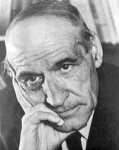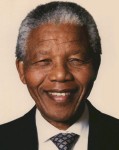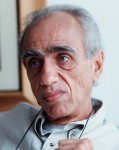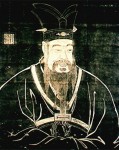Altruism: a Revolution
Article published in the GOOD WILL Sustainable Development magazine forwarded to the United Nations in July 2015.
I would like to ask permission to share with you, esteemed readers, some lines that were inspired by the efforts of Good Will.
According to our belief in the value of altruism, in my literary essay Sociologia do Universo [Sociology of the Universe], I stress that it is not because we believe in this feeling, including in the area of business, that we should be considered fools. We are well aware of the hindrances, even in the economic and social fields, like the tragedy of corruption, which any community or country needs to courageously face up to and overcome. By proposing decades ago the Economy of Spiritual and Human Solidarity as a Survival Strategy, we became part of the rigorous group of those who want to see corrected the many faults which harm society.

José Ortega
One of the most expressive Spanish philosophers, José Ortega y Gasset (1883-1955), goes along with this ancient precept when he says: “Human state and life project, action program, or conduct are inseparable terms. The different State classes are born from the way in which the entrepreneurial group establishes collaboration with the others.”
A country’s development, when most threatened by violence, cannot do without a philanthropic spirit, therefore humanitarian, allied with a spirit of honest justice and a competent administration. The Persians, who followed the doctrine of Zarathustra (about 660-583 BC), taught: “He who is indifferent to the well-being of others does not deserve to be called man.”
Deng Xiaoping (1904-1997), who in the 20th century started a series of profound reforms in China, observed what should not be followed when one works towards harmony: “There are people who criticize others to gain fame, by stepping on the shoulders of others to occupy key positions.”
For all these reasons, what we precisely suggest, having Jesus as the foundation, is the Economy of Spiritual and Human Solidarity, which goes beyond what inspired the solidary economy studied by the eminent sociologist Émile Durkheim (1858-1917). One only has to remember that the Divine Master, as Francis of Assisi (1182-1226) called Him, warned: “So in everything, do to others what you would have them do to you, for this sums up the Law and the Prophets (The Gospel according to Matthew 7:12).”

Nelson Mandela
The Economy that we proclaim is holistic, inasmuch as it invites us to see our true origin, which is spiritual. Only in this way will the State be humanized and spiritualized, beginning with human beings themselves, in other words, bathed in the light of Ecumenical Charity, which makes no distinction between people, since it considers that—above our race, belief, disbelief, political views, sexual orientation, and age—we stand before earthly and spiritual beings who supplicate for help and understanding. . . .
Very much to the point, the heroic Nelson Mandela (1918-2013) stated: “Man’s goodness is a flame that can be hidden but never extinguished.”
The praiseworthy initiatives of the Third Sector, when properly employed, are an indispensable part of the good development of communities. By doing so, we exercise, for example, excellent social practice and Citizenship, which has to be better understood by everyone.

Herbert de Souza
When we talk about Fraternal and Universal Love, we are in no way wishing to walk around with our heads in the clouds. We are certain, however, that the good feeling of generosity is the essential factor for a civilization in which the Eternal Spirit of human beings is the pivotal point. Based on this spiritual intelligence a revolution is shaping up that urgently needs to be concluded, a revolution that is taking place in the Souls of each individual and through them is perpetuated. This is where efficient education comes in; more than that, effective re-education, which is essential for consolidating complete citizenship and for the perfect exercise of authority.
Let us recall this lesson from the late sociologist Herbert de Souza (1935- 1997), known as Betinho: “Starting with ethics it’s possible to formulate the five true principles of democracy: equality, freedom, diversity, participation, and solidarity—all existing simultaneously.”

Confucius
It was well-deserved and appropriate the cultural award he received at the end of 1996 from the World Parliament of Ecumenical Fraternity, the LGW’s ParlaMundi, in Brasília, Brazil: the Order of Merit of Ecumenical Fraternity, in the “Solidarity” category. As I wrote in the article “A Citizen Called Solidarity,” the fight against hunger, for which Betinho became a powerful advocate, naturally demands constant effort. . . .
So, let us always have some mercy along with fair common sense in the way we look at things, in the attitudes towards our fellow beings, whether we know them or not; in the interaction with our neighbors, whether an individual or a country. The so desired Peace can also come out from this understanding.
It is essential, therefore, to never forget this eloquent reflection from Confucius (551-479 BC): “Repay kindness with kindness, but evil with justice.”
The comments do not represent the views of this site and are the sole responsibility of their authors. It denied the inclusion of inappropriate materials that violate the moral, good customs, and/or the rights of others. Learn more at Frequently asked questions.